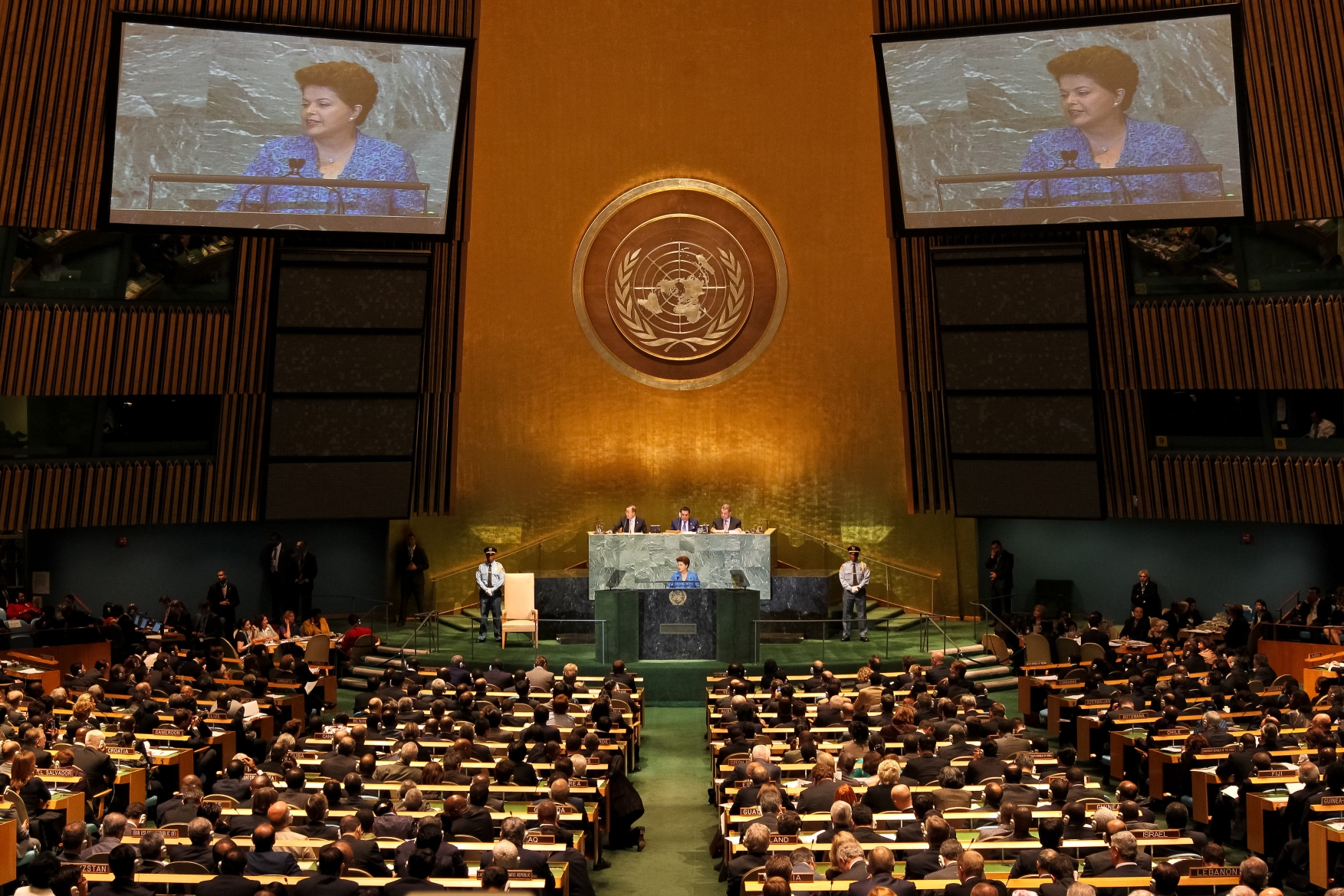 |
| When the U.N. General Assembly listens to a speaker, how much is lost in the translations? |
"As you know, translation is really a problem-solving task. Every once in a while you see the original and something comes into your head that is also a formal solution to the problem of getting it into lively English, and you feel like you've written a poem. But that's pretty rare. I wouldn't exactly say it's more like doing crossword puzzles than it is like writing poetry, but it's a mix of the two. "
- Robert Hass, "Interview: A Common Language"
Ask Google Translate to do its work on "poets online" and you will get in Italian "poeti in linea" and in French "poètes en ligne" and though I can't read Japanese, I'm sure that 詩人オンライン is also a "poet on a line" of some type. Something is certainly "lost in translation."
Translation is difficult. Edward Hirsch says that "Strictly speaking, total translation is impossible, since languages differ and each language carries its own complex of linguistic resources, historical and social values. This is especially true in poetry, the maximal of language."
The translation of poetry needs something more than simply translating words and getting the same general meaning. In defining "translation" for his Poets Glossary, Edward Hirsch notes:
That’s why its untranslatability has been one of the defining features of poetry. Samuel Taylor Coleridge coined the word untranslatableness. Robert Frost famously said, “Poetry is what gets lost in translation.” An Italian pun captures the idea: traduttore/traditore, translator/traitor.You can find advice about translating poetry, but I am interested here more in using poetry to talk about translation.
We sometimes say, "Let me translate that for you" meaning that we will rephrase something complex into a more understandable form. We use the expression "in simple English" in this way.
Richard Blanco's poem"Translation for Mamá" begins:
What I’ve written for you, I have always writtenHe writes his poems and also translates it into his mother's Spanish.
in English, my language of silent vowel endings
never translated into your language of silent h’s.
Lo que he escrito para ti, siempre lo he escrito
en inglés, en mi lengua llena de vocales mudas
nunca traducidas a tu idioma de haches mudas.
But "How do I say it?” is what Joy Harjo is really concerned with in her poem “Deer Dancer..” Though she can be referring to the language of her own Mvskoke/Creek Nation, she is also talking about the inadequacies of all languages.
How do I say it? In this language there are no words for how the real world
collapses. I could say it in my own and the sacred mounds would come into
focus, but I couldn’t take it in this dingy envelope. So I look at the stars in
this strange city, frozen to the back of the sky, the only promises that ever
make sense.
Harjo is trying to tell a story about an incident in a bar, but language can't quite convey all that happened there that night.
Nearly everyone had left that bar in the middle of winter except the
hardcore. It was the coldest night of the year, every place shut down, but
not us. Of course we noticed when she came in. We were Indian ruins. She
was the end of beauty. No one knew her, the stranger whose tribe we
recognized, her family related to deer, if that’s who she was, a people
accustomed to hearing songs in pine trees, and making them hearts.
The word "translation" derives from the Latin translatio, which in turn comes from trans- and fero, meaning “to carry across” or “to bring across.” It usually mean the transfer of meaning from one language to another, but it also is what we do in interpreting the world around us every day.
One of my poems is about this everyday translating we do - from other languages, in interpreting the world and certainly in writing and reading poetry.
Translation
My grandparents would speak Slovak
with my father, the aunts and the uncles
at the Sunday dinners at their home in Newark
when they didn’t want us to know.
In those days, the priests spoke Latin.
That was the mystery of the faith.
The boys on the #42 bus spoke Spanish
as I rode to my afterschool job
and when they laughed, looking in my direction.
Too fast for my B+ Spanish III understanding
but enough that it hurt.
The waiter at the Chinese restaurant
changes my order into words
that I want to understand,
but will never know.
Translation.
This is the poet’s job,
and the job of the reader too.
We have been in training
all our lives.- Kenneth Ronkowitz
Our writing prompt for November is a poem about translation in any of those three ways: from other languages, in interpreting the world, or in writing and reading poetry.
